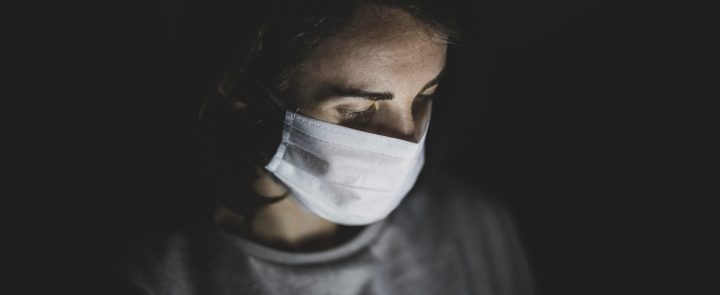Starting Ph.D. during a global pandemic
When I began my Ph.D. candidate career in January 2020, I had no idea that the upcoming year would be nothing I’d expected it to be. I had just been offered the Ph.D. candidate position in the LuotAI project that launched in the same month as well. I accepted the position with gratitude but had butterflies in my stomach: On the one hand, I was thrilled to begin my career in academia and conduct real research with real researchers. On the other hand, I had some self-doubts. One of the main topics in our research is artificial intelligence and as an economic geographer, it felt way beyond my comfort zone. Luckily, our project consists of an extremely talented group of people, including my supervisor Johanna, who made me feel welcome since day one. My colleagues’ excitement towards our research gave me the boost I needed. I was ready to begin!
Turns out, starting your Ph.D. studies in the middle of a global pandemic is hard. At the beginning of the year, I was looking forward to getting to know other researchers, attending interesting seminars and courses, and making the most of my Ph.D. research. Of course, all these things were and still are possible; however, instead of attending a summer school in Amsterdam, I’m following a Zoom lecture from my bedroom. On paper, nothing has changed, and yet everything has. I know writing about the loneliness and stress of remote work has become somewhat passé, but I can’t help mentioning it. I’m a people person, and one of my greatest joys in work is the unexpected conversations at the coffee machines or spontaneous lunches with colleagues. The community I was welcomed in only a year ago slowly turned into names on my computer screen.
Despite everything, I consider myself lucky to be working on research funded by Kone Foundation. After adjusting to the ‘new normal’, we were back on track. In 2020, our goal was to gather research data for the first phase of our project, i.e. interviewing 25 computer scientists and 25 artists who work with artificial intelligence. In no time, we had acquired a research group consisting of over 50 individuals, most of which were interviewed online over spring and summer 2020. After the data analysis phase, we began writing our articles. Thanks to their hard work, LuotAI researchers Paulina and Riina have already submitted their paper to a journal. The second article – my first scientific paper! – is soon to follow. The data collection for the second phase has now begun with the lead of our third researcher Astrid. The year was extraordinary indeed, but we managed to reach our goals. Hopefully, we can soon celebrate that in person.
To summarise my personal experience, I could write something profound about how I’ve learned many important life lessons and am stronger than ever. However, for a person who’s privileged enough to work from the comfort of her own home amid a global pandemic, that would be rather corny. I have learned something, though; I know a great deal more about artificial intelligence, academia, and online conference tools than I did this time last year. I now have coding skills in Java and have finally understood how RefWorks functions. I also know that a standing desk is the best purchase one can make – your back will thank you later! All in all, I’m quite happy. Hopefully, next time this year I have learned how we eventually defeated the pandemic and could meet each other again. Oh, and hopefully I’ll know how it is to be a researcher who has published peer-reviewed scientific articles, too!
Photo by engin akyurt on Unsplash

